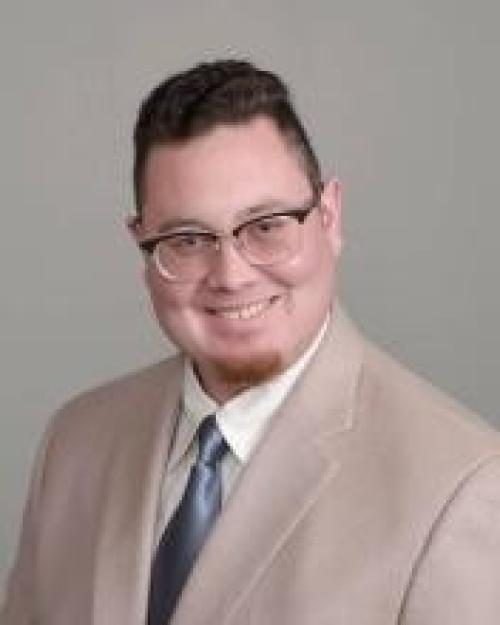
Steven Ohnmacht, DO - 2023-2025
I completed fellowship at Tulane from 2023-2025 during which I took the opportunity to take the Immunoparasitology class offered by the School of Public Health and Tropical Medicine which allowed me to complete a capstone project identifying potential vaccine targets for Schistosoma japonicum. After fellowship I have joined a private group in Phoenix, AZ which has academic opportunities with the Banner University Medical Center Phoenix – a 746-bed teaching facility which serves as the primary teaching site for the University of Arizona Phoenix. I found my time at Tulane has more than prepared me to deal with everything that ID has to offer from HIV care to transplant to travel medicine. It really cannot be overstated how vast the array of pathology that can be found in New Orleans is and everyday offered something new and exciting. One highlight that stands out was identifying a case of persistent Clostridium haemolyticum bacteremia via utilization of a next generation sequencing assay. Additionally, all of the attendings were wonderful people and were a pleasure to work with. It also goes without saying that New Orleans is a special city unlike any other in the continental US. If I had to do it all again, I would choose Tulane for fellowship in a heartbeat.
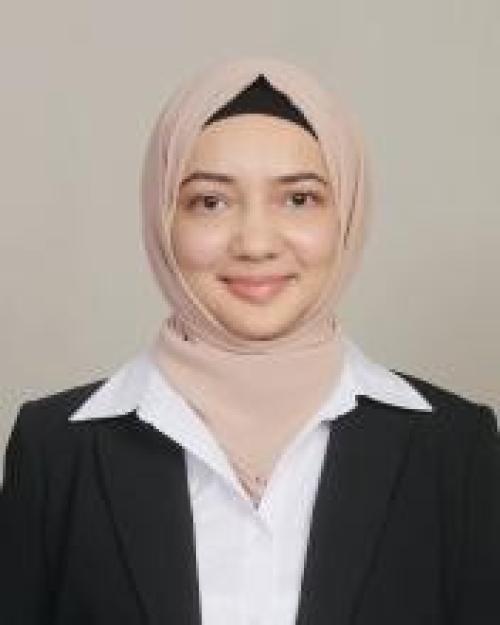
Sobya Hashmi, MD -2023-2025
Completing my adult Infectious Diseases fellowship at Tulane University was an incredible experience. I had moved from California and enjoyed this wonderful change of living in the beautiful city of New Orleans with its lively vibe, great food and friendly people. At Tulane, rotating at three different hospitals enabled me to learn from the socially diverse patient population and unique pathology. I attended extensive electives for Antibiotic stewardship, Infection prevention & control, and Transplant ID. I worked on a QI project and implemented antibiotic lock therapy in a hospital and received ‘Best Collaborator award’ from Tulane GME. I was honored to serve as the Chief Fellow, which refined my leadership skills; the valuable insights I gained during this role shaped me in a way which will always benefit me. Additionally, I was granted the VA medical center New Orleans ‘Trainee of the Year award.’ Tulane’s well-rounded training with a breadth of Infectious Diseases cases, city-wide and program’s conference presentations, and its highly supportive and knowledgeable ID faculty, thoroughly prepared me for both academia and clinical medicine. I am equipped to work as an ID attending in San Joaquin General Hospital in French Camp, California. During my rigorous training, I noticed that Infectious Diseases pushes you to think broadly, act decisively, and at times, work in uncertainty, but along the process I learned that it’s the curiosity, community, and compassion that gets you through it. I learned these lessons from my dedicated community at Tulane and will carry this meaningful impact with me as I move into the next chapter of my life and career. I believe, I wouldn’t be where I am today without Tulane, for which I am indebted and forever grateful.
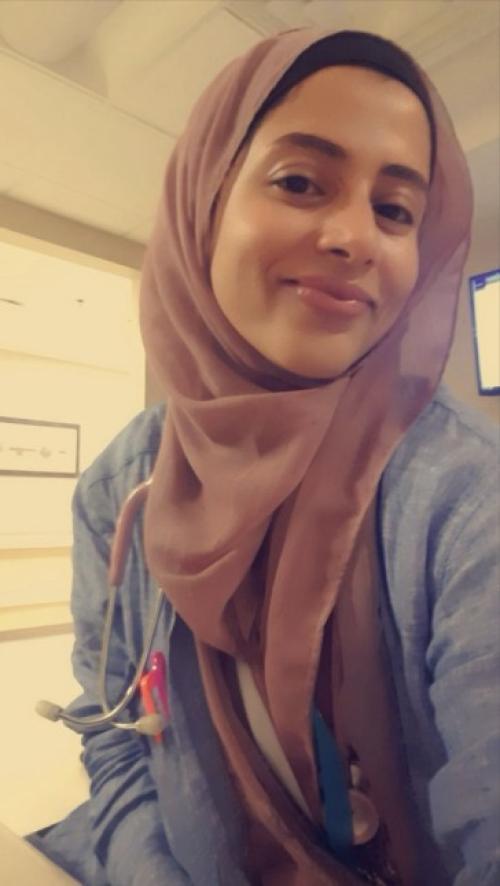
Sarah Ali Bahnshal, MD - 2023-2025
My name is Sarah, and I moved from Saudi Arabia to New Orleans to complete my Infectious Diseases fellowship at Tulane University, a journey that was both personally enriching and professionally transformative. During my two years at Tulane, I trained in a highly supportive and collaborative academic environment. One of the most impactful aspects of my time there was enrolling in courses at the School of Tropical Medicine as part of the Diploma in Tropical Medicine curriculum. These courses provided a solid foundation in helminthology, microbial diseases, and diagnostic microbiology, while also opening doors to meaningful research opportunities and professional relationships. This academic experience led to my involvement as a volunteer at the International Society of Travel Medicine (ISTM) Conference held in New Orleans. There, I connected with global leaders in travel and tropical medicine and began preparing for the ISTM Certificate in Travel Health (CTH) exam. Driven by a growing interest in public health, I initiated a study titled “The Impact of COVID-19 Among People Who Smoke, Vape, or Use Drugs.” Participant recruitment was launched through the Tulane University COVID-19 Antibody and Immunity Network (TUCAIN), which maintains a well-established longitudinal cohort and provides a valuable foundation for clinical data analysis. The study is currently ongoing. Clinically, my training in Louisiana, high HIV prevalence and a diverse patient population exposed me to a broad spectrum of infectious diseases. I encountered complex opportunistic infections, non-tuberculous mycobacterial cases, and transplant-related infections, among many others. This rich clinical experience fully equipped me to manage the diverse challenges of infectious disease practice. Outside the hospital, I came to love New Orleans for its vibrant culture, welcoming community, and rich culinary traditions. Until my final days in the city, I continued to explore its hidden gems, each experience adding to the personal depth of my journey. Now back in Jeddah, starting as an Infectious Diseases attending at the International Medical Center, carrying the impact of Tulane with me into this next chapter.
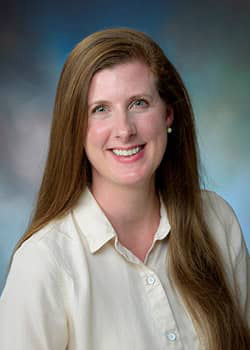
April McDougal, DO - 2018-2020
I’m a native of North Texas and graduated from The University of North Texas Health Science Center in 2015. I completed my Internal Medicine residency at Loyola University Medical Center in 2018 and Infectious Diseases fellowship at Tulane in 2020. While in fellowship, I completed the Tropical Medicine Certification Course at Tulane University School of Public Health and Tropical Medicine, served as Principal Investigator of a study evaluating treatment response of the T-SPOT.TB assay to active pulmonary and extrapulmonary tuberculosis and worked with the New Orleans Department of Health on the Cities Readiness Initiative involving the Strategic National Stockpile and medical countermeasures. Additionally, I was named the University Medical Center New Orleans Fellow of the Year for 2019-2020 for my work relating to the COVID-19 response.
My time at Tulane has already shaped my infectious diseases career immensely. Without the staff and connections made while at Tulane, I would not be where I am.
I joined the University of Texas Medical Branch's Division of Infectious Diseases as an assistant professor and Division of Infection Control and Healthcare Epidemiology as the associate director in July 2020.
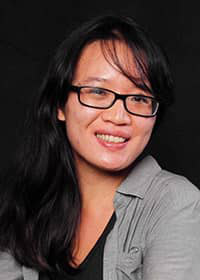 Crystal Zheng, MD
Crystal Zheng, MD
Hello, my name is Crystal Zheng. I completed my infectious disease fellowship at Tulane from 2018 – 2020. After fellowship, I stayed on at Tulane as faculty as a physician-scientist with research interests in viral hemorrhagic fevers, global health, tropical medicine, and COVID19. My clinical interests and responsibilities include quality improvement, outpatient parenteral antimicrobial therapy, and serving as the coordinator for the fellows’ clinic.
I chose Tulane for ID because of the opportunities available to become involved with tropical medicine, the fascinating mix of infectious disease pathology that is not seen anywhere else in the US, and to advocate for an underserved patient population. During fellowship I had the opportunity to become involved with research on Ebola virus disease in Sierra Leone, which ultimately led me to discover my interest in academic medicine as a career. Beyond the professional reasons for choosing Tulane, New Orleans is a great city to live in that has the close-knit feel of a small town but the cultural offerings of a big city.
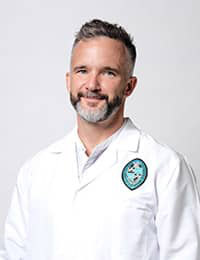 John Dwyer, DO
John Dwyer, DO
I trained at Tulane from 2017 to 2019 after spending three Years in New York City for residency. The more manageable size, easy-going pace (New Orleans is not called the "Big Easy" for nothing!), friendly people, and omnipresent music were a welcomed change from the Big Apple! In my opinion, living in New Orleans is the closet thing to living in the Caribbean: vibrant, musical, tropical, unique cuisine! After fellowship I was fortunate enough to stay on as an Assistant Professor of Medicine at Tulane, where I have my hands in a variety of activities: Antibiotic Stewardship and Infection Prevention at Tulane Medical Center, several half days of clinic per week (including the Tulane fellows's HIV clinic), inpatient teaching rounds, and serving as the site Co-PI for an outpatient COVID-19 treatment study.
The highlight of my training at Tulane was the awesome combination of experienced (and approachable) faculty plus the second-to-none pathology encountered at Tulane (and New Orleans), which occurs in an collaborative environment conducive to massive learning. In New Orleans, interesting pathology abounds for unfortunate reasons, namely, high prevalence of HIV/AIDS in Louisiana, poverty/social injustice, homelessness, mass incarceration, sex worker industry, etc. Training at Tulane prepared me for my career by forcing me to leave my comfort zone: I was challenged by the complexity of cases, by witnessing daily and discussing the blatant effects of social injustice, by engaging in medical education of residents and students, and by learning to ask my teachers for help. Tulane reminded me that medicine (and life!) is an education without a graduation.
Yardley Brice, DO
I trained at Tulane's Infectious Disease(ID) fellowship from 2017-2019. I currently reside and work in southeastern CT. I'm a private ID physician with academic opportunities with Yale (if I chose so) and practice in a local community hospital with two other ID physicians. We all share and wear many hats. I'm never bored! There is no doubt in my mind that training at Tulane prepared me for my current position and more. Although it can be stressful to rotate at three different hospitals when training at Tulane; I believe the experience overall prepared and honed my skills in coordinating, collaborating, and caring for my patients with other healthcare professionals across many different medical systems, and EMRs. Some highlights of my time at Tulane include diagnosis of TB meningitis my second month as a fellow and being involved in making the diagnosis and managing treatment of a new rare emerging fungal disease in a immunocompromised man. I also took advantage of the opportunity to take classes in tropical medicine at the Tulane School of Public Health and Tropical Medicine.
Living in New Orleans is AWESOME; there’s nothing like it. I did a lot of research of where to live, and eventually settled in the Garden District. There is literally a festival for everything and that is not an exaggeration- there are more festivals in NOLA than days of the year! I highly recommend Jazz Fest, by far my favorite. Tulane/NOLA will become part of you should you train here in both personal and professional ways. I've now adapted “Y'all” in my vernacular and say "hey baby"(in New Orleans accent of course) to my friends and family!
Justin Oring, DO
I am currently working as an academic infectious disease physician at Mayo Clinic in Jacksonville, FL. I’ve been here for one year, and heavily involved in our infection prevention and control (IPAC) program. During my 2nd year at Tulane, I applied for a 1-year infection control fellowship at Wayne State University in Detroit, MI, and learned more details about how infection preventionists diagnose CLABSIs, CAUTIs, Since COVID started, though, I’ve been heavily involved in our IPAC response, and have been at the forefront of our mitigation response. I serve as the vice chair of IPAC, and sit in on weekly meetings at our incident command center, which includes the CEO of our campus, as well as chairs and managers from all departments. Additionally, I’m involved in several research trials going on for COVID. One unique aspect that I’ve also been involved in with IPAC is being the physician advisor to several companies that contract with Mayo Clinic for their COVID response, including a major airline, a professional sports organization, several universities in Florida, and even a fast-food restaurant chain. In addition to working with IPAC, I’ve spent time on our inpatient service, which includes both general ID and solid organ transplant, and now a new COVID service, as well as our outpatient clinic. I started at Tulane in 2016 and completed my fellowship in 2018. The education that was taught by the ID staff at Tulane was invaluable, and has made me feel like I’ve become a competent ID physician. I can honestly say that I feel that the education for HIV at Tulane surpasses what is taught by staff here! I was very eager to learn about HIV and felt like I had an excellent grasp about HIV, opportunistic infections, and HAART by the time fellowship was complete. But what I really enjoyed most about my time at Tulane were the ID attendings that I worked under. Everyone was easy to talk to, and I never felt embarrassed about asking questions, no matter how trivial. It was as excellent teaching environment, and the cases that I saw were definitely “bread and butter,” with the occasional zebras. I also liked the fact that we had weekly conferences with LSU and Ochsner, and had the chance to interact with ID physicians at those institutions. Presentations could be a little intimidating to present during the trisite days, but never hostile! It was a very supportive environment. The opportunity to obtain an MPH was also appealing, and was happy that the attendings encouraged it.
Living in New Orleans was great. I’m from Houston, TX, originally, so it wasn’t too far from home. I guess the big difference is that New Orleans is considered a tourist city. Everywhere you go, people know about New Orleans. It becomes a part of you; the culture, the food, the people, the history - it rubs off on you. I feel proud to say that I’ve lived in New Orleans, and find myself missing it regularly. My current endeavors include starting an MPH online with Johns Hopkins University in January 2021, and have been in an 8 month process of joining the Navy Reserves as an ID physician, which has finally been approved; eager to see what else life has in store!
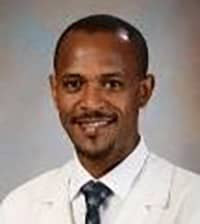 Sisay Debebe, MD
Sisay Debebe, MD
I did my ID fellowship at Tulane from 2013 through 2015. I have been working at Mcleod regional medical center in Florence South Carolina since I graduated from Tulane. I am mainly working as clinician in this non profit, non governmental, 461 bed community hospital with family medicine residency program and many satellite hospitals which I do telephone consults as well. My training at Tulane has prepared me for patient care in the wide range of ID issues from transplant ID to travel medicine etc. Contrary to my expectation before I started my fellowship, New Orleans has so much to offer to anyone who is single to the ones who has big family. I have generally found the training at Tulane has equipped me with what it takes in every aspect of ID including academic and clinical practice as well as rich experience getting to work with socially diversified and very collegial staff and group.
Anup Subedee, MD
I completed Infectious Diseases fellowship at Tulane ID program in the years 2012-2014, and was also able to acquire the Masters of Public Health - Tropical Medicine at the at the Tulane School of Public Health and Tropical Medicine around the same time.
In early 2018, I returned from the USA to Kathmandu, Nepal with my family, and I am practicing as an infectious diseases physician and internist at a non-government hospital here. During this time, I have helped develop hospital infection prevention and control training programs for nurses, that fortunately helped lay some groundwork in different hospitals in Kathmandu before the COVID-19 pandemic hit this country. And since January this year, I have worked to help improve the country's response to the pandemic by providing mostly unsolicited advice to the government, trying to raise awareness in the public through articles in newspapers, going on radio, television and social media, and making it difficult for those in power to not do the right thing.
My main reason for picking Tulane ID fellowship program over others was the expectation that I would be exposed to a broad range of infectious diseases, especially what we may call the diseases of the poor or minority populations both in the first and third worlds, and that I would have ample opportunity to learn from mentors and clinicians who were experts on such diseases. And I did not turn out to be wrong at all. Plus, I was pleasantly shocked to see how cosmopolitan Tulane was, as I found among my mentors, my co-fellows, residents, and even medical students numerous people who had traveled to South America, Africa and Asia to work as volunteers in various settings, and brought back that part of the world with themselves. I was also shocked to see the scars and ongoing violence of centuries of injustice and suffering in such a large swathe of the population in a city of the 21st century USA.
Looking back at the years spent at Tulane ID fellowship program, if I had to pick one thing that stood out above everything else, it was the spirit of serving and standing together with those who are the most vulnerable and the most unfairly treated by circumstances and the society, the sense of solidarity and camaraderie, and the sense of purpose that permeated most of the things we did, including teaching and learning. And if I had to pick one thing I most value that I took away from those years, it would be the lessons on how to be a role model for those around us - that I saw exemplified in my mentors, in my co-fellow who is the program director now, and in the fascinating group of people that the program seems to always draw around it - who were always relentlessly fighting apparently Sysiphean battles for the poorest and the most unfortunate patients and working in so many fronts to help their bodies and lives heal, pursuing excellence in clinical care and teaching, supporting colleagues and mentees selflessly and zealously, while making it all look fun and easy all along. Looking back from a country where the youth are now fasting onto death demanding that the government stop using worthless point-of-care antibody tests for diagnosis of COVID-19 and stop the nexus of those in power and their cronies from turning the crisis into yet another profiteering bonanza, I appreciate what I believe I took in from the spirit of service and from my role models - lessons on how to care and fight for and bring hope to the people who have lost everything including hope and how to work to change the culture and system which makes doing the right things so hard. And I should mention that the additional MPH-TM training has really been a great help in with my current work in Nepal, especially during the COVID-19.
The years spent in New Orleans marked the fondest of times for myself and my wife and daughter. We poignantly miss the times we spent listening to roadside music in the French Quarter, strolling in Audubon Zoo or Lafreniere Park, riding the streetcar or trying a pie at the boisterous Jeff and Gill's Chili and Pie gatherings, not to mention the seemingly incessant series of parades that reminded us so much of the "Jatra’s” in Kathmandu, the crawfish boils, etc. etc.
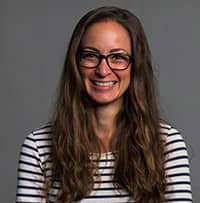 Kristina Angelo, DO, MPH&TM
Kristina Angelo, DO, MPH&TM
I did my adult Infectious Diseases fellowship at Tulane from 2011-2013. After finishing fellowship, I worked for a year at NO/AIDS Task Force (now Crescent Care) providing HIV/AIDS care in New Orleans. In 2014 I moved to Atlanta to join the Epidemic Intelligence Service (EIS) at the Centers for Disease Control and Prevention (CDC). After my 2-year EIS experience, I decided to take a permanent position as a medical epidemiologist at CDC, working in global health and international travel. While at CDC, I have traveled to almost 20 countries, providing epidemiology, travel, and infectious disease expertise. My fellowship at Tulane, including the second year where I enrolled at the Tulane School of Public Health and Tropical Medicine where I earned an MPH&TM, prepared me to identify and diagnose a vast array of both common and rare infectious diseases. I love New Orleans – it certainly is a place that once you live, you never fully leave. My favorite things about New Orleans are the FOOD, culture, live music, and… did I mention the FOOD? Looking back, fellowship at Tulane was a necessary piece to preparing me for her career. The relationships I made, the patients I treated, and the knowledge I gained from my mentors, carried with me to my current position and forever made an imprint on my pursuit of global infectious disease care.
